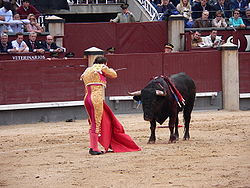I'm now a few days out from the Chicago Marathon and I'm looking forward to seeing how my training prepares me. The thing about the marathon is that you only have one shot to perform. You can have a perfect build-up leading into the race but the "marathon microscope" can find one little hiccup and then it's game over.

The biggest change I made for this marathon is that for the first time since college, I had someone writing workouts for me. As you can probably tell from most of my weekly recaps, I can get pretty whiny, especially this past summer.
In August, I had a failed attempt at a track workout but I still partook in my post track workout beverage of a McDonalds Coke (it tastes the best there and the liquid simple carbs are quickly absorbed by your body, helping recovery...at least, that's what I tell myself). But while sitting in the drive-through line, I decided I had to quit messing around and hire some help.


For the past few years, I've just done my own stuff, which is heavily based off my spin of Renato Canova's training. A very basic rundown of it is that you try and become 5k-HM fit from about four months until two months out from your marathon and then you spend the final two months trying to become efficient at marathon pace and building the proper metabolism for the event.

When you train alone, you really get a feel for things. You're not out there talking and listening to others, you're listening to your body. And since I not only trained mostly by myself, I coached myself, I felt like I had both ends covered and could usually tell what I needed/lacked at almost any time.

When you train alone, you really get a feel for things. You're not out there talking and listening to others, you're listening to your body. And since I not only trained mostly by myself, I coached myself, I felt like I had both ends covered and could usually tell what I needed/lacked at almost any time.
But being married with two young kids, coaching 14 other runners (at the time), as well as coaching an elementary cross country team, my mind was constantly fried. Trying to dissect and write my own workouts was too tiring and since I was developing a habit of dropping out of them, I needed some accountability and a new perspective.
Realizing, I probably have 2-3 more shots at a lifetime marathon PR (I'm getting old, physically and mentally), I didn't just want to get just anyone. Learning about a runner takes trial-and-error and I didn't want to take a big chance on someone for my last few shots. So I talked to a buddy who's being advised by Brad Hudson and after contacting Brad, he agreed to help me out.
Brad is also heavily influenced by Canova and a lot of his workout staples are some of my own (long steady runs, big focus on specificity, short hill sprints, short fartleks, etc). I was excited at the fresh new look of my training and I felt like I would quickly be on my way to a fast time at Chicago. Not to mention, he has worked with A LOT of fast men and women marathoners and is not only an accomplished coach but a student of the sport, so I had no doubt he would be great to work with.
After nearly two months of working with him, what are the differences in my individual training? The major difference is that every single weekend is TOUGH. Since I started working with him in early August, my only "easy" paced long run was about 23 miles. I was allowed to run whatever pace I wanted, which doesn't sound too bad, but it was the day after a 4x2 mile interval workout and part of a 42 mile weekend. And I believe it was my first run over 20 miles in over three months.
Other than that, every long run has been at a moderate to fast pace and I routinely cover 22+ miles with frequent doubles in the evening afterwards. To be honest, I really miss my cliche 20 mile long runs at 6:10ish pace but I've always felt that once you are pretty fit, they aren't a very good training stimulus anymore.
Besides the tough weekends, an average week is typically some sort of interval work between 10k-HM pace in the middle of the week with a day of short hill sprints and some relaxed 100m strides. I used to run the hill sprints a few years ago and to be honest, cut them out because I was lazy and I hated them. But I feel they are beneficial and I've been diligent at doing them this time. The training seems a little simple but I feel it has prepared me well for the marathon distance.

After reflecting on my 2014 Houston race, I felt like I was too fast and while I got in some decent workouts at 105-110% of marathon pace, I needed more work at speeds just below marathon pace, which is where your body starts to burn fat and carbs are nearly a 50% rate.
This time, all of the extended steady running, combined with frequently doubling back in the evening on long runs days, has hopefully resulted in a more fuel-efficient marathon engine. While I feel like I was much more HM fast before the Houston Marathon, this time, I feel like I could kick the crap out of my old self in anything longer than a marathon.

And something else I've done totally differently is that I do my main workout in the early morning before work, rather than trying to knock it out in the evening. It's hard to wake up as early as 4am some days and do a large portion of my runs in the dark but by doing it first thing in the morning, I don't have to attempt it after a long day of work when I'm mentally and physically tired and also take away additional time from my family.
And an additional added bonus that I feel is going to help me in Chicago is that other than my weekend long runs (where I'll eat a small bowl of cereal beforehand and a gel or two during the run), is that all of my morning running has been on an empty stomach, after a 10+ hour fast. Especially on the faster intervals, where I'm burning nearly 100% carbs for my energy demands, my body is hopefully getting in a lower carb state, which helps change my body into a better marathon fueling engine. I've never understood why a lot marathoners in training constantly guzzle fuel on their workouts. You can't properly train for a low-carb race if you are constantly feeding yourself carbohydrates!
But to make a long story short, I'm excited to see how the revamped training will help my performance this weekend. While the intensity and even some of the weekly volume has been down, I feel much better prepared for the marathon distance than I did almost two years ago.
Here's an abbreviated version of my 10 week marathon build-up, which is when I started working with Brad. It includes the mileage for the week, along with key workouts, minus strides and hill sprints. Rather than put down time averages and trying to justify weather adjustments and all of that other crap, I just put down efforts to make it more understandable and relatable. There were a few workouts that I had to shorten or had to completely change but this is how everything looked when it's all said and done.
Week 10: 4x200m at mile to 3k pace with 200m jog, 4 miles working from MP to HMP; Chicago Marathon
Week 9: 92 miles with 5x1 mile at 10k with 2:30 jog; 14 miles with 2x3 mile at MP with 60s jog
Week 8: 104 miles with 4 miles of 30s at mile-3k pace with 2:30 at 90% of MP; 10.2 miles progression, working from a little slower than MP to a little faster than MP
Week 7: 120 miles with 4x2k (a little slower than 10k pace) with 2:00 jog and 1k (a little slower than 5k pace) with 3:00 jog; 22.7 miles with 5x5k at a little faster than MP with 1k jog at about 90% of MP and a 5 mile evening run
Week 6: 108 miles with 20k race;23.6 miles with a 21.5 mile slight progression run averaging about 95% of MP
Week 5: 89 miles with 2x200m at 3k with 200m jog, mile at 5k pace, 1/2 mile jog, 3k a little faster than HMP, 1/2 mile jog, 4x400m at 3k pace with 1:00 jog; 8x30s at mile pace, 2:30 easy
Week 4: 121 miles with 6x2k working from HM to 10k pace with 2:00 jog; 24 miles with nine mile warm-up, 4 miles of 1 minute at faster than 5k pace, 1:00 jog (averaging marathon pace for the four miles), right into 6 miles at MP, 1 mile easy, 3 miles a little faster than MP, 1 mile easy
Week 3: 115 miles with 1-2-3-2-1-2-3-2-1 with equal jog recovery with the fast minutes being between 10k-HMP and the slow minutes being a little slower than 90% of MP; 5k regression run, working from 10k pace to marathon pace (ran a 5k for some $); 21.5 miles with 16.5 mile progression starting a little slower than 95% of MP and working down to a little slower than MP and a 5 mile evening run
Week 2: 115 miles with 12x1k working from HM to 10k pace with 90s jog; 20 miles with 5x3k at MP with 1k at 90% of MP and a 5 mile evening run
Week 1: 115 miles with 4 miles a little faster than HM pace, half mile jog, 6x3:00 gradual uphill at 10k effort; 4x2 miles starting a little slower than working to a little faster than HM pace; 22.5 miles easy
Besides the tough weekends, an average week is typically some sort of interval work between 10k-HM pace in the middle of the week with a day of short hill sprints and some relaxed 100m strides. I used to run the hill sprints a few years ago and to be honest, cut them out because I was lazy and I hated them. But I feel they are beneficial and I've been diligent at doing them this time. The training seems a little simple but I feel it has prepared me well for the marathon distance.

After reflecting on my 2014 Houston race, I felt like I was too fast and while I got in some decent workouts at 105-110% of marathon pace, I needed more work at speeds just below marathon pace, which is where your body starts to burn fat and carbs are nearly a 50% rate.
This time, all of the extended steady running, combined with frequently doubling back in the evening on long runs days, has hopefully resulted in a more fuel-efficient marathon engine. While I feel like I was much more HM fast before the Houston Marathon, this time, I feel like I could kick the crap out of my old self in anything longer than a marathon.

And something else I've done totally differently is that I do my main workout in the early morning before work, rather than trying to knock it out in the evening. It's hard to wake up as early as 4am some days and do a large portion of my runs in the dark but by doing it first thing in the morning, I don't have to attempt it after a long day of work when I'm mentally and physically tired and also take away additional time from my family.
And an additional added bonus that I feel is going to help me in Chicago is that other than my weekend long runs (where I'll eat a small bowl of cereal beforehand and a gel or two during the run), is that all of my morning running has been on an empty stomach, after a 10+ hour fast. Especially on the faster intervals, where I'm burning nearly 100% carbs for my energy demands, my body is hopefully getting in a lower carb state, which helps change my body into a better marathon fueling engine. I've never understood why a lot marathoners in training constantly guzzle fuel on their workouts. You can't properly train for a low-carb race if you are constantly feeding yourself carbohydrates!
But to make a long story short, I'm excited to see how the revamped training will help my performance this weekend. While the intensity and even some of the weekly volume has been down, I feel much better prepared for the marathon distance than I did almost two years ago.
Here's an abbreviated version of my 10 week marathon build-up, which is when I started working with Brad. It includes the mileage for the week, along with key workouts, minus strides and hill sprints. Rather than put down time averages and trying to justify weather adjustments and all of that other crap, I just put down efforts to make it more understandable and relatable. There were a few workouts that I had to shorten or had to completely change but this is how everything looked when it's all said and done.
Week 10: 4x200m at mile to 3k pace with 200m jog, 4 miles working from MP to HMP; Chicago Marathon
Week 9: 92 miles with 5x1 mile at 10k with 2:30 jog; 14 miles with 2x3 mile at MP with 60s jog
Week 8: 104 miles with 4 miles of 30s at mile-3k pace with 2:30 at 90% of MP; 10.2 miles progression, working from a little slower than MP to a little faster than MP
Week 7: 120 miles with 4x2k (a little slower than 10k pace) with 2:00 jog and 1k (a little slower than 5k pace) with 3:00 jog; 22.7 miles with 5x5k at a little faster than MP with 1k jog at about 90% of MP and a 5 mile evening run
Week 6: 108 miles with 20k race;23.6 miles with a 21.5 mile slight progression run averaging about 95% of MP
Week 5: 89 miles with 2x200m at 3k with 200m jog, mile at 5k pace, 1/2 mile jog, 3k a little faster than HMP, 1/2 mile jog, 4x400m at 3k pace with 1:00 jog; 8x30s at mile pace, 2:30 easy
Week 4: 121 miles with 6x2k working from HM to 10k pace with 2:00 jog; 24 miles with nine mile warm-up, 4 miles of 1 minute at faster than 5k pace, 1:00 jog (averaging marathon pace for the four miles), right into 6 miles at MP, 1 mile easy, 3 miles a little faster than MP, 1 mile easy
Week 3: 115 miles with 1-2-3-2-1-2-3-2-1 with equal jog recovery with the fast minutes being between 10k-HMP and the slow minutes being a little slower than 90% of MP; 5k regression run, working from 10k pace to marathon pace (ran a 5k for some $); 21.5 miles with 16.5 mile progression starting a little slower than 95% of MP and working down to a little slower than MP and a 5 mile evening run
Week 2: 115 miles with 12x1k working from HM to 10k pace with 90s jog; 20 miles with 5x3k at MP with 1k at 90% of MP and a 5 mile evening run
Week 1: 115 miles with 4 miles a little faster than HM pace, half mile jog, 6x3:00 gradual uphill at 10k effort; 4x2 miles starting a little slower than working to a little faster than HM pace; 22.5 miles easy
.
.jpg)












